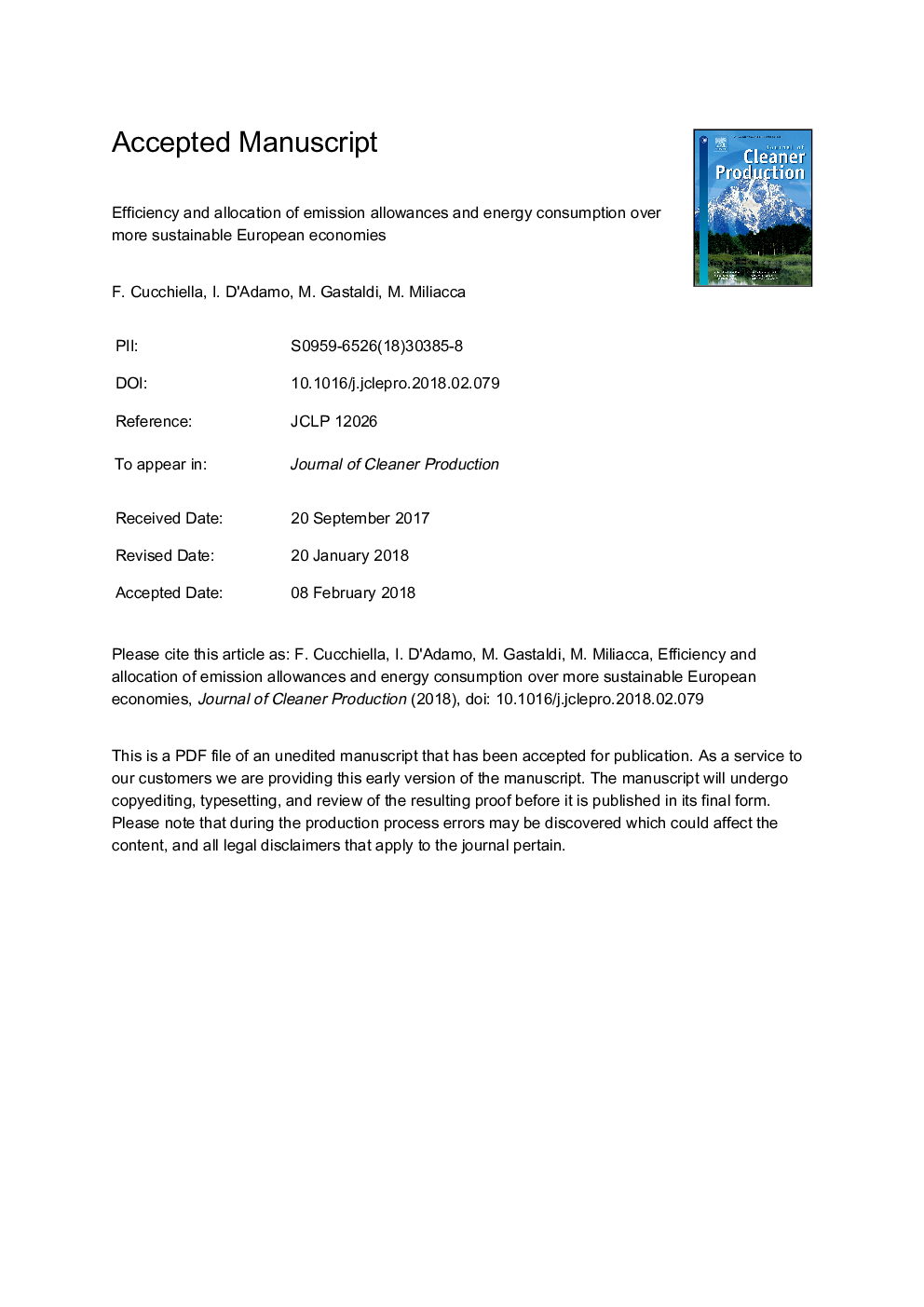| Article ID | Journal | Published Year | Pages | File Type |
|---|---|---|---|---|
| 8097458 | Journal of Cleaner Production | 2018 | 30 Pages |
Abstract
Efficient use of energy, reduction in fossil fuel dependence and control of CO2 emissions are all fundamental to development of a sustainable economy. Competitiveness in energy use saves imports of oil and gas, increases gross domestic product and creates new jobs in the renewable energy and energy efficiency sectors. This study identifies the more or less competitive European Union member states in terms of sustainable growth, using Data Envelopment Analysis (DEA) model, and proposes new allocations of country greenhouse gas limits and energy consumption, using a Zero Sum Gains DEA model. The analysis of European countries fills a gap in the existing literature and contributes to the discussion on the 2020-2030 European strategy, proposing an efficiency-based indicator which measures country performance in terms of economic, social and environmental factors: GDP represents the economic factor, population represents the social factor, and emissions, final and renewable energy consumption are the environmental factors. The numerical results show that the initial allocations are inefficient. Applying the modelled reallocation, the most efficient countries are “rewarded” by potential increases in emission and energy consumption, while the least efficient countries must bring about decreases to achieve full efficiency.
Related Topics
Physical Sciences and Engineering
Energy
Renewable Energy, Sustainability and the Environment
Authors
F. Cucchiella, I. D'Adamo, M. Gastaldi, M. Miliacca,
